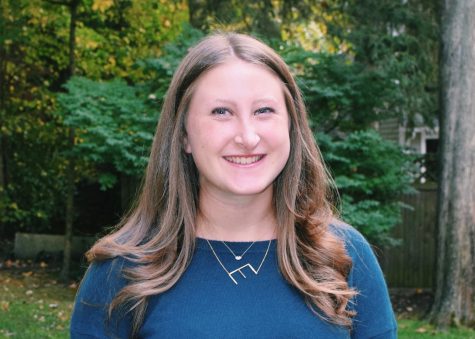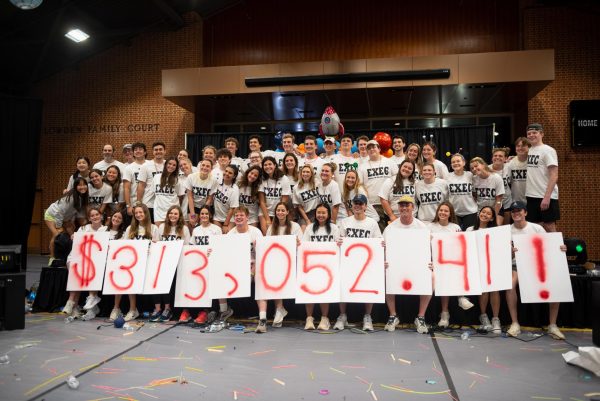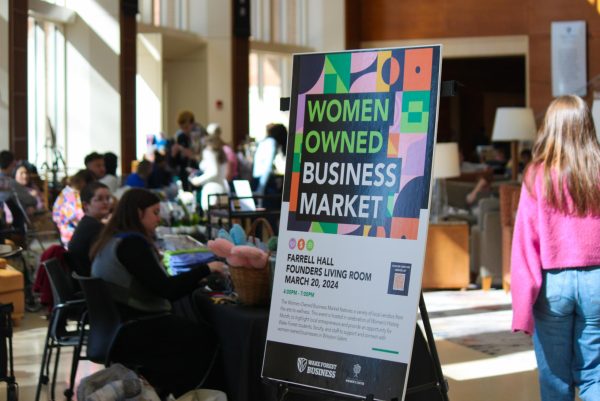RIPI increases awareness of racial inequality
Through the Race, Inequality and Policy Initiative, the university plans to raise students’ awareness of inequality
November 19, 2020
The Race, Inequality and Policy Initiative (RIPI), founded in October, showcases student and faculty research that draws attention to racial, ethnic and gender inequalities. The goal of the initiative is to enhance the community’s understanding of these injustices, which exist in Winston-Salem as well as in the country as a whole.
According to Professor Betina Wilkinson, director of RIPI and Associate Chair of the Politics and International Affairs Department, RIPI is a “multidisciplinary research initiative” with a mission that is two-fold.
“First, the initiative seeks to support faculty who conduct research and teach about policies that promote or diminish racial, ethnic and gender inequalities and inequities particularly on topics surrounding immigration, education, housing, environmental policy and crime,” she said. “Second, the initiative seeks to engage students in research and community projects on projects that address racial, ethnic and gender inequalities that are transformative and useful for the community at large.”
Wilkinson’s research and the RIPI have emerged while President Trump’s administration has failed to acknowledge the importance of racial justice in the United States. According to junior Donald Barrett, a student assistant for Wilkinson, Trump’s administration has played a role in the circulation of disinformation regarding issues of race and inequality in America.
“In a debate this October, we watched Vice President Mike Pence claim that systematic racism did not exist in our country,” he said. “The unfortunate truth is that a lot of people still believe this, despite overwhelming evidence to the contrary. The RIPI’s work is critical because it exposes the truth and actively supports those who are studying potential solutions.”
According to Wilkinson, RIPI distinguishes itself from other centers or institutes at the university through its primary focus on the impact that domestic policies have on communities of color in the United States. Further, the initiative encourages the translation of research findings into actions that can be taken by community organizers and policymakers.
Senior Addison Collins has worked with Wilkinson on a project in affiliation with the RIPI related to race and perception of government corruption. She is hoping that RIPI will help her share her research with a wider audience.
“I think even just being an affiliated student with this initiative is an honor but something that I specifically hope to accomplish is get this research paper published in an academic journal,” Collins said.
Senior Indy Cousin, on the other hand, has assisted Wilkinson with a project related to sports activism and its increasing importance within the Black Lives Matter movement.
“Although Professor Wilkinson began this project before the protests and conflict of this summer, we found the research extremely relevant,” Cousin said. “With all of the turmoil experienced after George Floyd’s murder, Professor Wilkinson realized that this research could be more meaningful with a racial lens.”
Each of the students involved with the initiative have found it to be an opportunity for them, as well as their fellow students, to dive deeper into these issues.
“With everything that happened this summer, a lot of people are looking for ways to both learn and make a difference. I think the RIPI gives people a way to do both,” Barrett said. “My time working with the RIPI has definitely opened my eyes to a lot of what I had missed before, which is the whole point of the project.”
The RIPI’s mission is accomplished through a speaker series, a virtual library, faculty research and a student-led mentoring program. The RIPI has hosted several Zoom events throughout the year in an effort to engage more community members in these discussions. RIPI also sponsors the work of the Latinx Mentoring Initiative, in partnership with Latin American and Latino Studies and the Office of Community and Civic Engagemnt.
“As part of the Latinx Mentoring Initiative, mentors like myself create relationships with Latinx youth in Forsyth County,” junior Justin Cabiltes said. “These mentorships aim to provide academic support to Latinx students, such as tutoring or assisting in college applications and also providing non-academic support as they undergo difficult, transitional periods in their lives.” Cabiltes says that by volunteering, mentors are able to understand and address inequalities present in the Latinx community.
Students affiliated with the RIPI all point to the potential for the initiative’s findings to have widespread impact. For Cousin, they can serve as a way for universities to reconcile with racial injustices on their campuses.
“Hopefully, the niche studies of RIPI become more mainstream as our research becomes publicized,” she said. “As such, researching racial perspectives on inequality offers an opportunity for universities to incorporate a racially accurate curriculum to serve the next generation of students and leaders.”
On the other hand, Collins’ and Barrett’s main goals are to spread information and stop disinformation about the role of policy in issues of race and inequality to students on campus.
“I’m hoping to engage and educate more students because I think that the more students learn, the more they will want to do to create positive change and impact,” Collins said.
Wilkinson has already begun planning for the Spring 2021 semester by developing the speaker series and pairing each speaker event with the launch of a new virtual library, just as she did in the fall.
“As of now, we have published the ‘Immigration and Inequality’ and ‘Criminal Justice and Inequality’ virtual libraries on our website,” Wilkinson said. Next semester we will pair the launch of our education, environmental and racism virtual libraries with speaker events on the aforementioned topics.”
With an eye toward the future, Wilkinson and her team also plan to begin a faculty research seminar and brainstorm ideas for a race, inequality and policy conference.





















